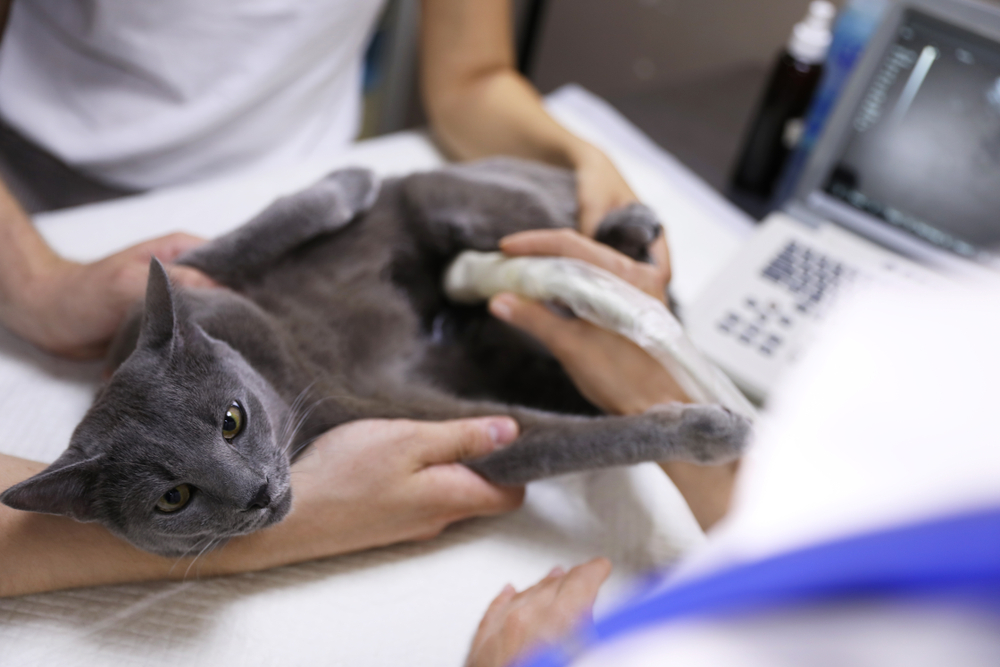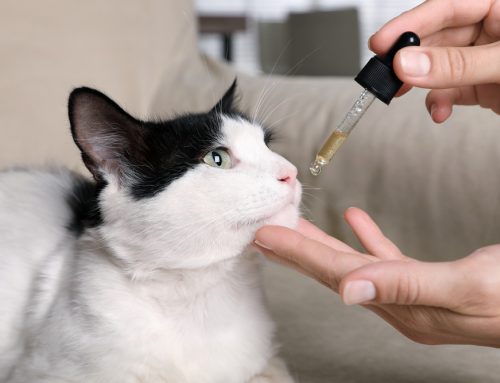Blood work is perhaps the most informative diagnostic service available in veterinary medicine. At Walnut Creek Veterinary Hospital, we routinely perform blood work for sick, healthy, and pre-operative pets to diagnose illness, determine a baseline, detect early disease, and ensure pets are healthy enough to undergo anesthesia and surgery.
But, although blood work provides your pet’s veterinarian with invaluable information, to you, the results probably look like a puzzling collection of letters, colors, and numbers. Knowing a few blood work basics can ensure you understand your veterinarian’s explanations and recommendations, and allows you to make informed decisions about your pet’s care.
When is blood work recommended for pets?
Blood work benefits aren’t limited to diagnosing sick pets—blood testing is routinely recommended at various life stages and events, including:
- Annual wellness exam — Apparently healthy pets can hide early changes that indicate disease, while healthy pet results provide a helpful baseline or normal, which the veterinarian can compare with future results.
- Emergencies — Rapid blood work can provide life-saving information about an emergent pet’s internal status.
- Before anesthesia or surgery — Anesthetic medications and surgery can be complicated when a pet is sick or health-compromised.
- Illness or suspected illness — Blood work plays a key role in ruling out or diagnosing pet conditions, and can help explain subtle changes in pet behavior.
- Prior to beginning medication — Blood work can ensure a pet’s liver or kidneys can safely metabolize their medication.
- Medication monitoring — Routine monitoring of long-term medications for conditions such as thyroid and seizures ensures adequate circulating drug levels, and can indicate side effects.
What’s included in a standard pet blood work panel?
Although literally hundreds of blood tests are available to measure specific functions, screen for disease, and assess pet health, the standard blood work panel at Walnut Creek Veterinary Hospital includes a complete blood count and a serum chemistry profile.
Briefly, each test includes:
- Complete blood count (CBC) — The CBC is the most common blood test performed in cats and dogs, and can indicate conditions including anemia, infection, dehydration, cancer, bleeding disorders, and immune system dysfunction or depression. The CBC includes:
- Red blood cells (RBCs) — Red blood cells transport oxygen throughout the body. Low RBCs indicate anemia.
- Hematocrit (HCT) — This measures the percentage of RBCs in the blood by separating blood into liquid and cellular portions.
- Reticulocytes (RETICs) — Reticulocytes are immature RBCs that can determine whether your pet’s anemia is regenerative or non-regenerative.
- White blood cells (WBCs) — White blood cells are your pet’s immune system cells. Each WBC type serves a unique purpose, although any increase or decrease can suggest infection, inflammation, or disease. WBCs include neutrophils (NEU), lymphocytes (LYM), eosinophils (EOS), monocytes (MONO), and basophils (BAS).
- Platelets (PLTs) — Platelets are small fibrous particles that initiate clot formation. Inadequate platelets indicate internal bleeding, a production problem in the bone marrow, or trauma (e.g., patient movement) during blood collection.
- The serum chemistry profile — Your pet’s chemistry profile evaluates their organ function, hormone production, internal homeostasis, and other key processes. Because nearly all internal actions are interrelated, chemistry values are considered singly and as a whole. Although we’ve grouped the major values together by primary organ, remembering that an abnormal value can have several causes is essential. Important serum chemistry features include:
- Kidney values — Your pet’s kidneys filter toxins from the blood and maintain appropriate hydration levels. Critical kidney health indicators include blood urea nitrogen (BUN), creatinine (CREA), and phosphorus (PHOS).
- Liver values — The liver is a multi-purpose organ that aids in blood filtration, digestion, storage, and blood clotting. Liver enzymes—alanine aminotransferase (ALT), alkaline phosphatase (ALP), and aspartate aminotransferase (AST)—can indicate changes in liver health or other body systems. Gamma glutamyl transferase (GGT), total bilirubin (TBIL), and albumin (ALB) can also reflect liver changes.
- Pancreatic values — The pancreas produces powerful digestive enzymes and insulin. Amylase (AMYL) and lipase (LIPA) elevations may indicate pancreatitis, while blood glucose (GLU) abnormalities can indicate pancreatic damage or diabetes.
- Electrolytes — The body requires electrolytes to maintain correct pH balance. Changes in sodium (Na+), chloride (Cl-), and potassium (K+) can be caused by fluid loss, including dehydration, vomiting, and diarrhea.
- Calcium (Ca+) — Calcium is a unique value that can be impacted by cancer, kidney disease, parathyroid disease, and toxin ingestion.
- Thyroid (T4) — Your pet’s thyroid gland produces thyroid hormone, which is largely responsible for regulating metabolism. Pets with low thyroid (i.e., hypothyroidism) and elevated thyroid values (i.e., hyperthyroidism) require synthetic thyroid supplementation or therapy to reduce thyroid production.
What happens if my pet’s blood work results are abnormal?

If your pet’s blood work results reveal a concerning change, your Walnut Creek Veterinary Hospital veterinarian will review the report with you, interpret the results, and recommend how you should proceed. Depending on your pet’s result, this may include:
- Retesting — Rechecking your pet’s blood work at a specific interval can determine whether further action is needed.
- Additional testing — More specific tests can help determine a diagnosis.
- Imaging — X-rays, ultrasound, or advanced imaging can pinpoint tissue disruption caused by disease or cancer.
Your pet’s blood work results are a window to their internal health. Understanding the most important values and concepts can help you focus on your veterinarian’s recommendations, and give you confidence about your care decisions. Contact Walnut Creek Veterinary Hospital to schedule your pet’s annual wellness visit and blood work.









Leave A Comment